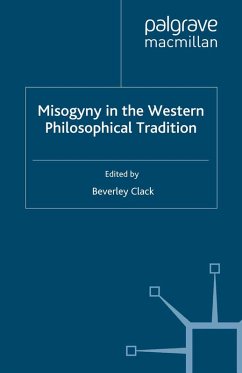
Gender, Ethics and Information Technology (eBook, PDF)
Versandkostenfrei!
Sofort per Download lieferbar
40,95 €
inkl. MwSt.
Weitere Ausgaben:

PAYBACK Punkte
20 °P sammeln!
This book brings feminist philosophy, in the shape of feminist ethics, politics and legal theory, to an analysis of computer ethics problems including hacking, privacy, surveillance, cyberstalking and Internet dating. Adam claims that these issues cannot be properly understood unless we see them as problems relating to gender. For the first time, these issues are put under the feminist spotlight to show that traditional responses reproduce the public/private split which has so often reinforced the causes of women's oppression.
Dieser Download kann aus rechtlichen Gründen nur mit Rechnungsadresse in A, B, BG, CY, CZ, D, DK, EW, E, FIN, F, GR, HR, H, IRL, I, LT, L, LR, M, NL, PL, P, R, S, SLO, SK ausgeliefert werden.












